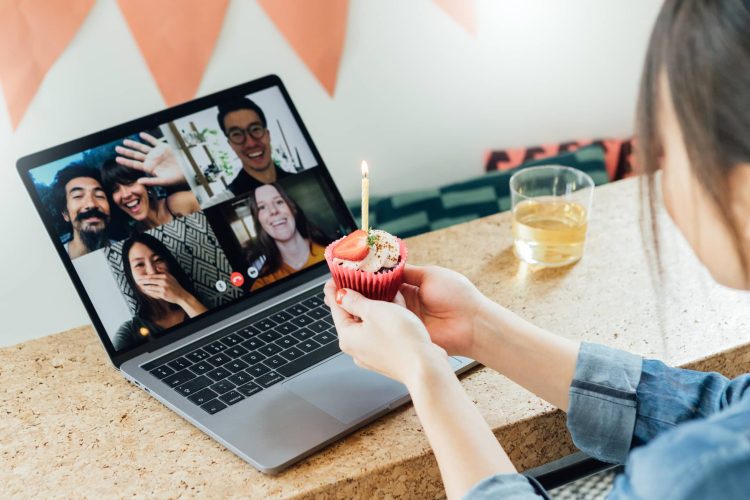In today’s hyper-connected world, where much of our social interaction takes place through screens, the question of whether authentic friendships can truly thrive in digital spaces is both urgent and fascinating. Digital wellness communities—spaces designed to encourage mental health awareness, holistic growth, and mutual support—are proving that meaningful relationships can blossom online, even in the absence of physical proximity. These connections are not simply casual exchanges of “likes” or fleeting comments; they can evolve into deep, supportive friendships that provide comfort, motivation, and healing. But how do we nurture these relationships intentionally, and how can we ensure that they contribute positively to our mental health instead of draining it?
This article explores the journey of moving from surface-level engagement to building real connections in digital wellness spaces. We’ll uncover why vulnerability strengthens bonds, how to balance openness with safety, and practical steps for cultivating an online environment that feels like home.
Beyond the “Like” Button: From Passive Scrolling to Active Engagement
Scrolling endlessly through posts, double-tapping to “like” a picture, or occasionally dropping an emoji reaction is the default way many of us interact online. While these small gestures can signify acknowledgment, they rarely foster genuine connection. In wellness spaces—where the goal is to uplift, encourage, and support—passive engagement is not enough. Real friendships grow when we move beyond shallow interactions into thoughtful conversations.
Why comments matter: Writing a few meaningful words in response to someone’s post can be transformative. Instead of simply clicking a heart, consider expressing empathy, sharing your own related experience, or asking a genuine question. For example:
- Instead of “Great job!” write: “I admire your consistency. I’ve been struggling to keep up with my own routine—how do you stay motivated?”
- Instead of “So true,” write: “I can relate deeply to what you shared about anxiety. When it hits me, I try journaling—have you found any practices that help you most?”
Such exchanges invite dialogue. They transform the interaction from a one-sided acknowledgment into a shared experience, opening the door for ongoing conversation.
Direct messages as bridges: While public comments create community visibility, private messages can deepen bonds. A thoughtful DM—sent with kindness and respect—can show someone that you value their presence beyond public recognition. Over time, these private conversations can become safe spaces where friends exchange deeper reflections, resources, or even just daily check-ins.
When we shift from passive scrolling to active engagement, we not only give but also receive. The more we invest in others, the more likely we are to find the supportive network we need ourselves.
Creating Vulnerability: The Power of Sharing Struggles
One of the paradoxes of digital life is that while it often presents carefully curated highlight reels, true human connection thrives on authenticity. In wellness spaces, vulnerability is the bridge that turns acquaintances into friends.
Why vulnerability works: When we share our struggles—be it burnout, loneliness, or anxiety—we give others permission to do the same. Vulnerability communicates: “You are not alone in feeling this way.” It fosters trust because it replaces polished perfection with relatable humanity.
For example, someone might post about achieving a meditation streak of 30 days. While inspiring, this could feel intimidating to those struggling to start. But if that same person admits that they missed sessions, felt restless, or doubted themselves at times, it creates a story that feels real and attainable.
Balanced openness: Vulnerability doesn’t mean oversharing every detail of your personal life. It’s about sharing intentionally, in ways that support connection rather than create discomfort. A simple reflection like, “I’ve been feeling low lately, and journaling has helped me stay grounded,” can be powerful. It reveals honesty without exposing more than you’re comfortable sharing.
The ripple effect: Vulnerability is contagious. When one person opens up, others are more likely to follow. Over time, communities that embrace honest sharing create cultures where support flows naturally. Members feel safe to ask for help, celebrate small victories, and comfort one another through setbacks.

Staying Safe: Protecting Boundaries in Online Friendships
While digital wellness spaces offer opportunities for meaningful connection, they also carry risks. Sharing parts of yourself online requires mindfulness, especially when navigating relationships with people you’ve never met in person. Maintaining boundaries is essential not only for personal safety but also for mental health.
Set boundaries early: Decide what you are comfortable sharing and what you will keep private. For instance, you may choose to discuss your feelings about stress but avoid disclosing your home address, workplace, or financial details. Boundaries help you feel secure while engaging authentically.
Recognize red flags: Not every interaction online will be healthy. Be cautious of individuals who demand too much personal information too quickly, pressure you into uncomfortable topics, or disrespect your boundaries. A supportive friend will respect your limits, not push past them.
Use platform tools: Most digital wellness spaces provide features for privacy and safety—blocking, muting, or reporting users. Don’t hesitate to use these tools if an interaction begins to feel unsafe or draining.
Balance online and offline life: While online communities can provide comfort, it’s important to ensure that they complement—not replace—offline support systems. Friends, family, or local groups can provide grounding experiences that digital spaces cannot replicate.
Staying safe allows you to fully enjoy the benefits of digital connection without compromising your emotional or physical well-being.
Building a Supportive Digital Culture
Beyond individual relationships, wellness spaces thrive when the overall community culture supports kindness, inclusivity, and encouragement. This culture is built not just by moderators but also by the collective actions of members.
Celebrate small wins: Encourage people not only for major milestones but also for their everyday efforts. Comments like “I’m proud of you for showing up today” remind others that progress is valuable at every stage.
Offer resources, not pressure: Instead of telling someone what they must do, share what has helped you and invite them to explore. For example: “When I felt anxious, breathing exercises helped me. Would you like me to share the guide I used?” This approach empowers others without overwhelming them.
Inclusive language: Words matter. Avoid judgmental or dismissive tones, and practice empathy in all exchanges. Phrases like “I hear you” or “That sounds tough” validate experiences without minimizing them.
Consistency matters: A thriving community is not built overnight. Consistent engagement, kindness, and patience cultivate an environment where friendships can grow steadily and sustainably.
A Call to Action: Turning Intention into Connection
Digital wellness spaces have immense potential to nurture friendships that are just as meaningful as those formed face-to-face. But the depth of connection depends on how we choose to engage. Instead of being passive observers, we can become active participants in creating supportive communities.
So here’s a challenge for today: Leave an encouraging comment on someone else’s post. Not just an emoji, not just a “like”—but a genuine, thoughtful comment that acknowledges their effort or shares your own perspective. This small act can brighten someone’s day, spark a conversation, and begin the journey toward authentic friendship.
In the end, digital wellness spaces remind us of a simple truth: even in the vast, virtual world, what we seek most is connection. When we approach online interactions with authenticity, vulnerability, and respect for boundaries, we open the door to friendships that are real, supportive, and deeply fulfilling.

































